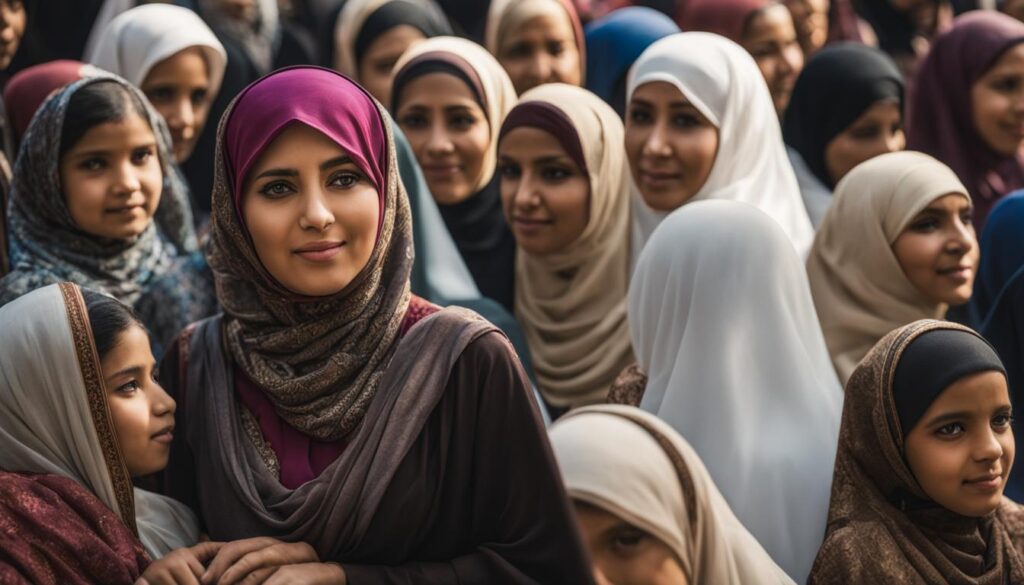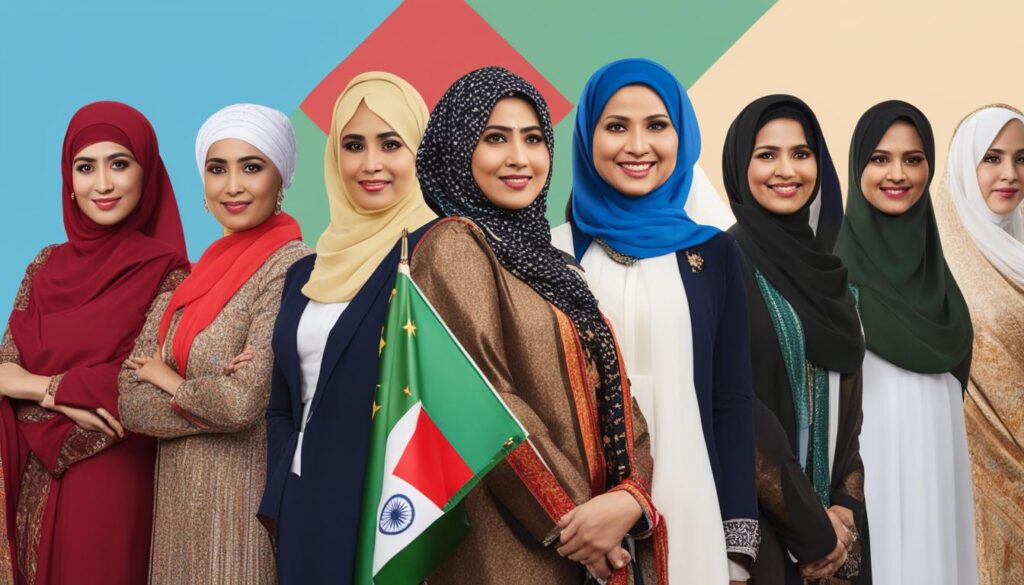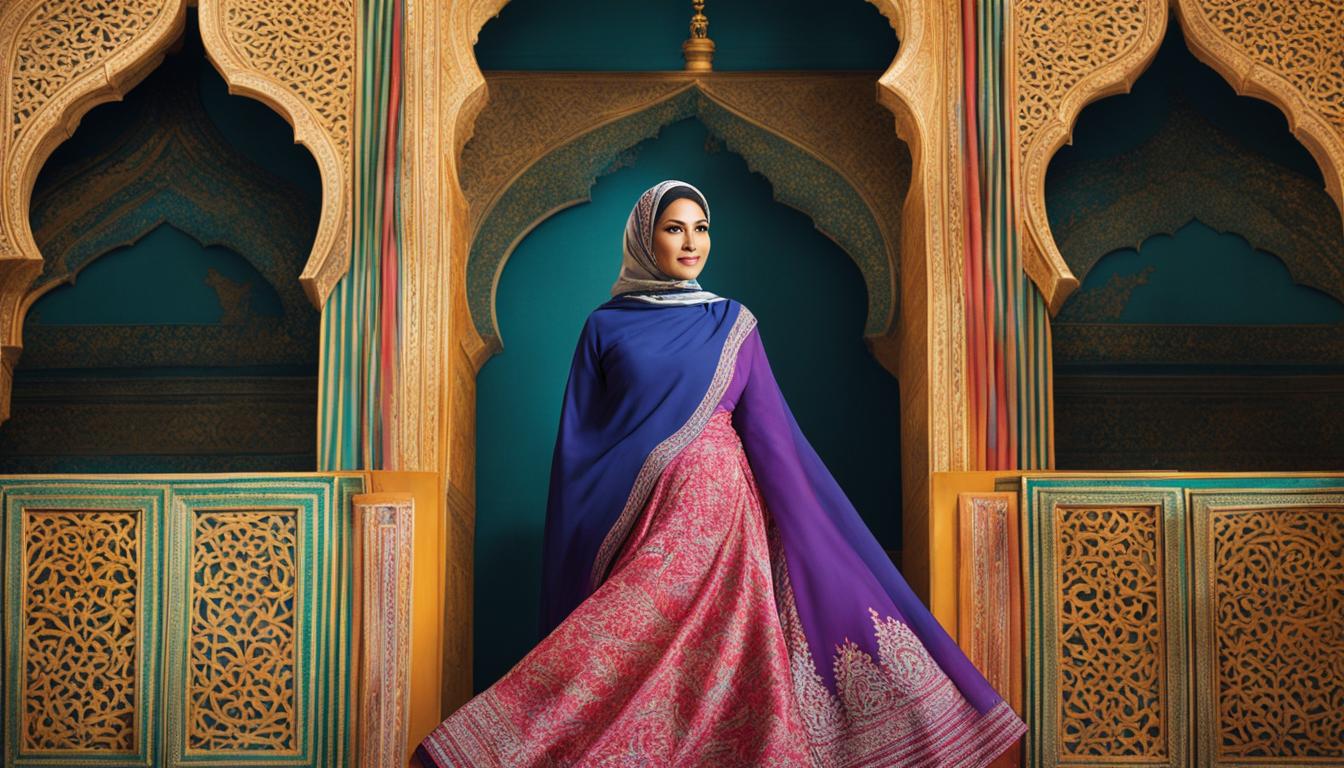Are you curious to know who was the first female leader of a majority Muslim nation? In this article, we will explore the remarkable story of Benazir Bhutto, who made history as the first female political leader in a Muslim-majority country. Join us as we delve into the significance of her achievement and the impact it had on women’s political leadership in Muslim nations.
Key Takeaways:
- Benazir Bhutto was the first female leader of a majority Muslim nation, serving as the prime minister of Pakistan.
- Her election in 1988 broke barriers and paved the way for other women to enter politics and hold high-level positions in Muslim-majority countries.
- Throughout history, there have been other pioneering female politicians in Muslim-majority nations, such as Tansu Çiller, Megawati Sukarnoputri, and Mame Madior Boye.
- The role of women in Islamic politics has evolved over time, with support for women’s involvement in public affairs found in the Qur’an and Hadith.
- While challenges and obstacles persist, there is a growing movement for gender equality and female empowerment in Muslim societies, advocating for increased representation of women in political leadership.
Muslim Women in Leadership Throughout History
In the realm of politics, Muslim women have made significant strides throughout history, breaking barriers and serving as pioneers in their respective nations. These trailblazers have left a lasting impact on the world, carving out milestones in female leadership that continue to inspire generations to come.
Notable Muslim Women Leaders
Among the noteworthy Muslim women who have held leadership positions, Tansu Çiller stands out as the first female prime minister of Turkey. Serving from 1993 to 1996, she shattered the glass ceiling in Turkish politics and set an example for future generations of women. Similarly, Megawati Sukarnoputri became the first female president of Indonesia in 2001, playing a crucial role in shaping the nation’s political landscape. Mame Madior Boye, Senegal’s first female prime minister, broke barriers and proved that women can excel in political leadership.
A Legacy of Progress
These pioneering female politicians have paved the way for greater gender equality and empowerment in Muslim-majority nations. Their achievements demonstrate that women can overcome societal barriers and excel in leadership roles. By breaking down stereotypes and challenging traditional norms, these women have contributed to the progress and advancement of their respective countries.
As we reflect on the historical contributions of Muslim women in leadership, it becomes evident that they have played an integral role in shaping the political landscape of their nations. Their courage, perseverance, and dedication have opened doors for future generations, inspiring more women to aspire to and attain positions of power and influence.
The Role of Women in Islamic Politics
The role of women in Islamic politics has undergone significant changes over time. While some traditional interpretations of Islamic texts may limit women’s power in public affairs, there are verses in the Qur’an that support the involvement of women in politics. For instance, the mention of the Queen of Sheba in the Qur’an highlights a female ruler who made important decisions on behalf of her people.
Additionally, the Hadith, which are the sayings and actions of Prophet Muhammad, provide examples of women having public leadership roles. These examples challenge the notion that women should be restricted to domestic spheres and highlight the potential for female empowerment in Muslim countries.
The Importance of Leadership Representation for Women
Efforts to increase leadership representation for women in Islamic politics are crucial for achieving gender equality and promoting female empowerment in Muslim-majority countries. By ensuring that women have equal opportunities to participate in public affairs and hold positions of power, societies can benefit from a broader range of perspectives and experiences in decision-making processes.
Moreover, increased representation can serve as a catalyst for change, inspiring future generations of women to pursue leadership roles and challenge traditional gender roles. It is important to continue advocating for women’s rights and working towards creating inclusive political environments that value and support the contributions of women.
Female empowerment in Muslim countries is a multifaceted issue, and progress varies across different nations. However, with continued efforts to challenge societal norms and promote gender equality, women’s role in Islamic politics can continue to evolve and contribute to positive social, economic, and political transformations.
Historical Perspectives on Women’s Leadership in Muslim-Majority Nations
The role of women in Muslim-majority nations has evolved over time, shaped by cultural, social, and political factors. In the early days of Islam, women held positions of power and influence, with examples such as the wives of Prophet Muhammad who played crucial roles in governing and leading. These pioneering women demonstrated the potential for female leadership in Islamic societies.
However, as time passed, societal norms and interpretations of religious texts began to restrict women’s roles and limit their power. Women’s influence became more confined to the household, and their involvement in public affairs diminished. This shift was influenced by various factors, including cultural customs, patriarchal norms, and the rise of conservative ideologies.
Prominent Historical Figures
Despite these limitations, there have been notable women throughout history who defied societal expectations and made significant contributions in Muslim-majority countries. For example, Razia Sultana, who ruled the Delhi Sultanate in the 13th century, challenged gender norms by assuming political authority. Similarly, Nur Jahan, the Empress of the Mughal Empire in the 17th century, exerted her influence and power in the male-dominated court.
- Razia Sultana: Ruler of the Delhi Sultanate in the 13th century
- Nur Jahan: Empress of the Mughal Empire in the 17th century
These historical examples highlight the existence of women leaders in Muslim-majority nations throughout history, even during periods when their prominence may have been diminished.
It was not until the 20th century that movements for women’s rights and freedom began to emerge, challenging societal norms and advocating for gender equality in Muslim societies. These movements sought to create a more inclusive society that recognizes and values the contributions of women in various domains, including politics.

Women Leaders in Muslim-Majority Countries
Throughout history, there have been several inspiring women who have held leadership positions in Muslim-majority countries. These women have broken barriers and shattered gender stereotypes, paving the way for future generations of female leaders. Here is a list of notable women heads of government and state in Muslim-majority countries:
- Benazir Bhutto: Bhutto served as the prime minister of Pakistan and became the first female leader of a majority Muslim nation in 1988.
- Khaleda Zia: Zia served as the prime minister of Bangladesh, leading the country from 1991 to 1996 and from 2001 to 2006.
- Sheikh Hasina: Hasina is the current prime minister of Bangladesh, serving since 2009 and becoming one of the longest-serving female leaders in the Muslim world.
- Megawati Sukarnoputri: Sukarnoputri served as the president of Indonesia from 2001 to 2004, making her the first female president of the country.
These women have faced numerous challenges and barriers on their path to leadership, but their determination and resilience have made them role models for aspiring female leaders. They have demonstrated that women can excel in political positions and contribute to the development and progress of their nations.
Despite the achievements of these women, there is still progress to be made in terms of gender equality and female representation in Muslim politics. However, their leadership has opened doors and inspired many others to pursue positions of power and influence. The future holds great potential for more women to emerge as leaders in Muslim-majority countries, shaping a more inclusive and diverse political landscape.
Women Leaders in Muslim-Majority Countries
Women’s Leadership in Muslim-Majority Countries Today
Despite historical challenges and societal norms, women continue to make their mark in the political arena of Muslim-majority countries. Today, there are inspiring women leaders who are breaking barriers and driving positive change in their nations. These trailblazers serve as role models for future generations, challenging traditional gender roles and paving the way for greater female representation in politics.
One prominent example is Atifete Jahjaga, who served as the President of Kosovo from 2011 to 2016. Her leadership demonstrated the immense potential of women to lead and govern effectively, making significant contributions to her country’s progress and development.
Another current woman leader in a Muslim-majority country is Samia Suluhu Hassan, the President of Tanzania. She assumed office in 2021, becoming the first female president of the country. President Hassan’s ascent to power exemplifies the growing recognition of women’s capabilities and the importance of gender equality in leadership.
Current Women Leaders in Muslim Countries:
- Atifete Jahjaga – Former President of Kosovo (2011-2016)
- Samia Suluhu Hassan – President of Tanzania (2021-present)
These women leaders demonstrate that gender should not be a barrier to achieving top positions in politics. Their accomplishments inspire hope and create opportunities for women to actively participate in decision-making processes and contribute to the betterment of their societies.

The continued rise of women in politics in Muslim-majority countries reflects the ongoing efforts to challenge traditional norms and promote gender equality. As more women break through the glass ceiling and assume leadership roles, the path towards inclusive governance becomes brighter. It is vital to celebrate and support these women leaders, as they play a crucial role in shaping a more diverse and equitable future for their nations.
Overcoming Challenges and Shaping the Future
Women leaders in Muslim-majority countries face unique challenges as they navigate the political landscape. One of the main obstacles they encounter is the persistence of traditional views that limit women’s roles to the domestic sphere. These conservative elements in society often resist women’s participation in public affairs, making it difficult for female leaders to gain support and recognition. Despite these challenges, women continue to break barriers and advocate for greater female representation in Muslim politics.
In addition to societal obstacles, women leaders also face gender bias and discrimination, both overt and subtle. They often have to work harder to be taken seriously and prove their capabilities as leaders. This systemic discrimination can undermine trust and create additional hurdles for women aspiring to political leadership.
However, there is a growing movement for gender equality and women’s empowerment in Muslim societies. Women are actively working to break down these barriers and increase their representation in political leadership. By organizing grassroots movements, advocating for policy changes, and supporting each other, they are creating a path for future generations of women to follow.
The future of women in Muslim politics holds great potential for progress and change. With continued efforts to challenge traditional norms and build inclusive societies, women will play a crucial role in shaping the political landscape of Muslim-majority countries. By amplifying their voices and promoting their leadership, we can ensure that female representation in these nations becomes not only a possibility but a reality.
Conclusion
In conclusion, Benazir Bhutto’s historic election as the first female leader of a majority Muslim nation, Pakistan, marked a significant milestone in women’s political leadership in Muslim-majority countries. Her victory broke barriers and inspired other women to enter politics and strive for leadership positions in their respective nations.
Throughout history, there have been pioneering women leaders in Muslim-majority countries, such as Tansu Çiller, Megawati Sukarnoputri, and Mame Madior Boye, who have shattered stereotypes and demonstrated that women can succeed in political roles. These women’s achievements have paved the way for future generations, challenging societal norms and advocating for gender equality.
While women’s representation in Islamic politics has evolved over time, it still faces challenges. Traditional interpretations of Islamic texts may limit women’s power in public affairs, but there are also verses in the Qur’an and examples in the Hadith that support women’s involvement in leadership. The interpretation of these texts varies, and women’s representation in Islamic politics continues to progress.
Despite obstacles, women leaders in Muslim-majority countries today, like Atifete Jahjaga and Samia Suluhu Hassan, prove that women can be effective leaders and contribute to the progress and development of their nations. The future holds promise for greater gender equality and female representation in Muslim politics as women actively work to break down barriers and increase their presence in political leadership.
FAQ
Who was the first female leader of a majority Muslim nation?
The first female leader of a majority Muslim nation was Benazir Bhutto, who served as the prime minister of Pakistan.
Are there other notable Muslim women who have held leadership positions?
Yes, there have been several notable Muslim women who have held leadership positions, such as former Turkish Prime Minister Tansu Çiller, former Indonesian President Megawati Sukarnoputri, and former Senegalese Prime Minister Mame Madior Boye.
How has the role of women in Islamic politics evolved over time?
The role of women in Islamic politics has evolved over time. While some traditional interpretations of Islamic texts may limit women’s power in public affairs, there are verses in the Qur’an that support the involvement of women in politics. Additionally, the Hadith provides examples of women having public leadership roles.
What is the history of women in Muslim-majority nations?
In the early days of Islam, women held positions of power and influence. However, as time passed, the role of women became more confined to the household. It was not until the 20th century that movements for women’s rights and freedom began to emerge.
Can you provide a list of women leaders in Muslim-majority countries?
Some examples of women leaders in Muslim-majority countries include Benazir Bhutto in Pakistan, Khaleda Zia and Sheikh Hasina in Bangladesh, and Megawati Sukarnoputri in Indonesia.
Are there women leaders in Muslim-majority countries today?
Yes, there are women leaders in Muslim-majority countries today. For example, Atifete Jahjaga served as the President of Kosovo from 2011 to 2016, and Samia Suluhu Hassan currently serves as the President of Tanzania.
What challenges do women leaders in Muslim-majority countries face?
Women leaders in Muslim-majority countries may face challenges from conservative elements in society that limit women’s roles to the domestic sphere. However, there is a growing movement for gender equality and women’s empowerment in Muslim societies.
What does the future hold for women in Muslim politics?
The future holds great potential for more women to take on leadership positions and contribute to positive change in Muslim-majority countries. It is important to continue pushing for progress and supporting the empowerment of women in all aspects of society.

